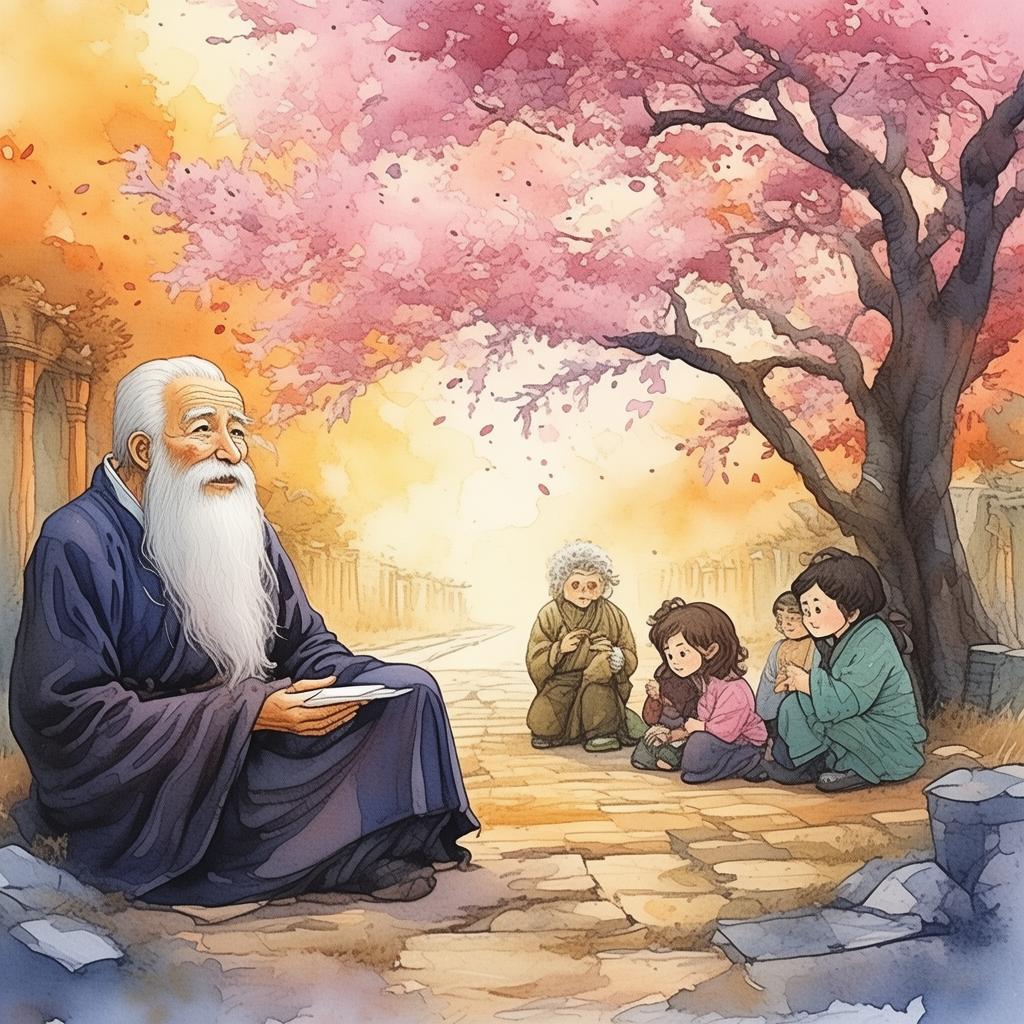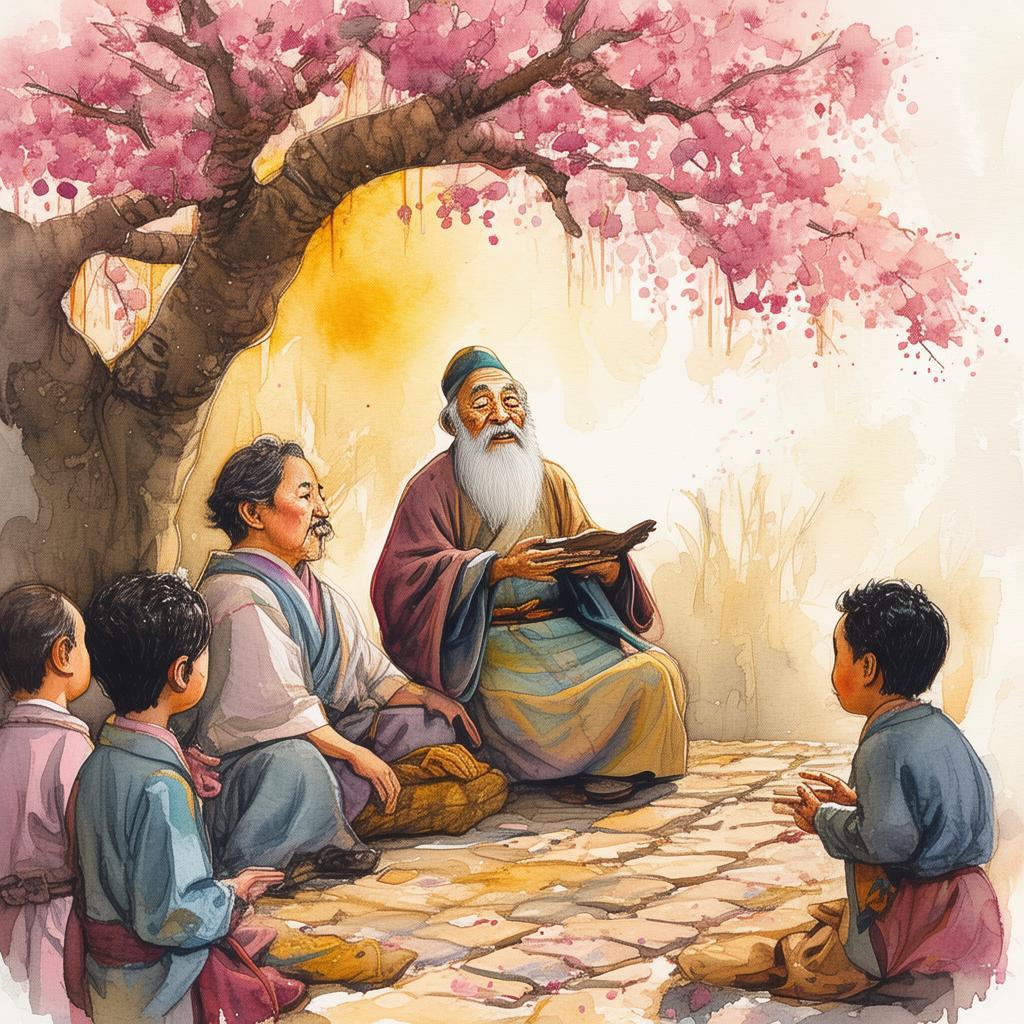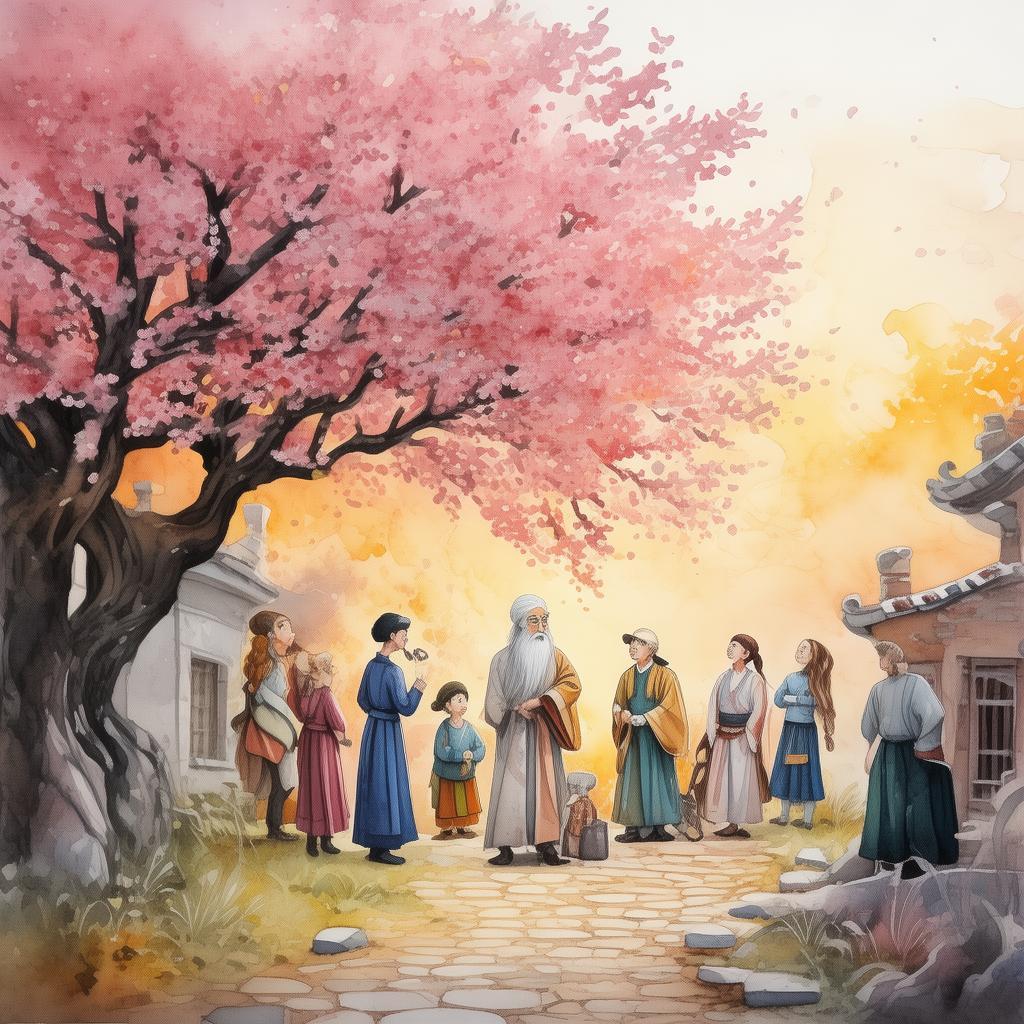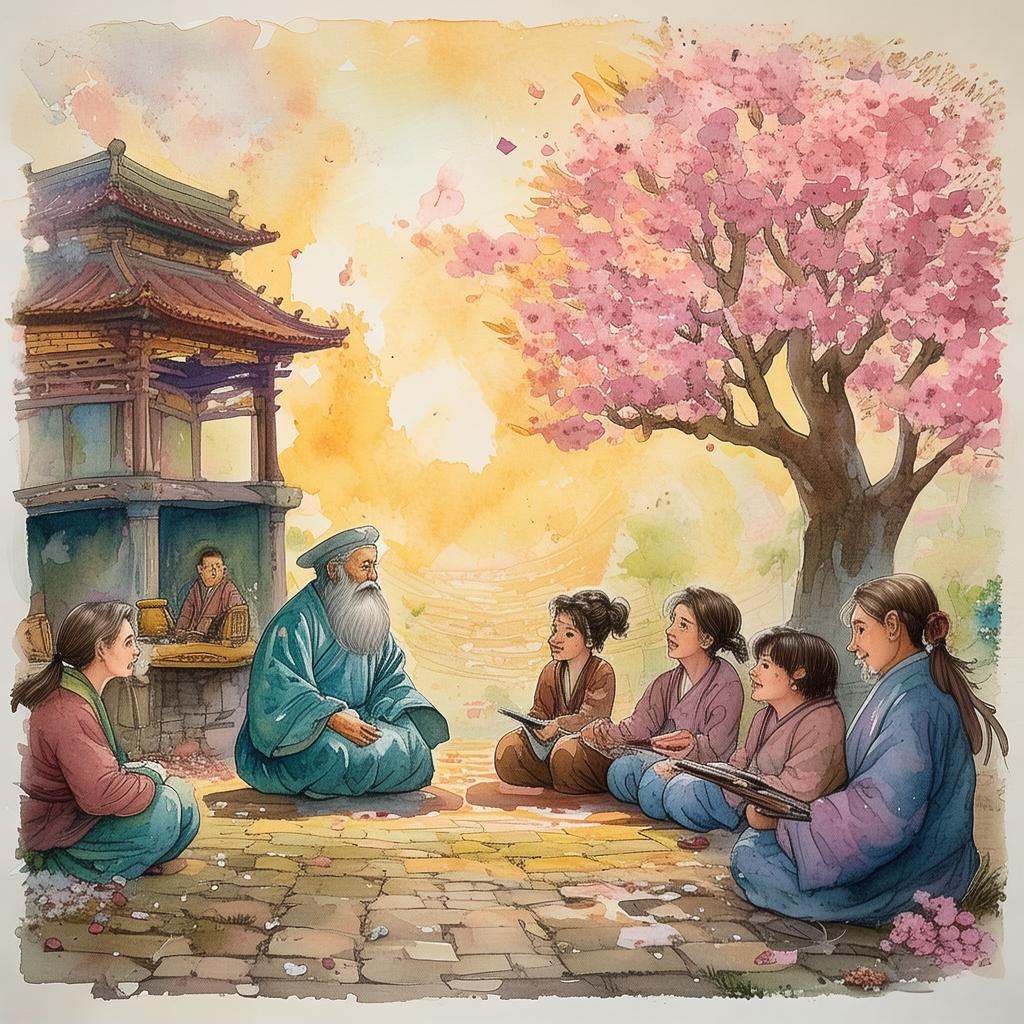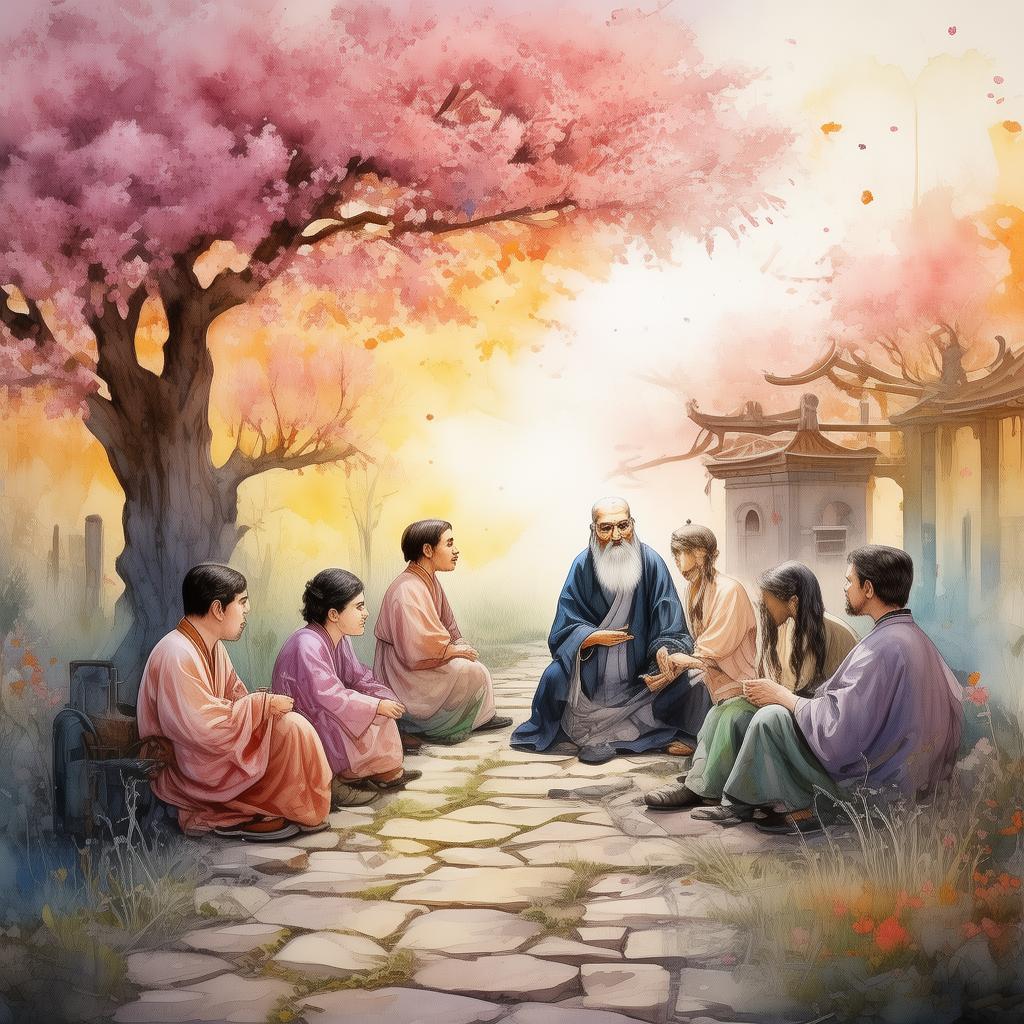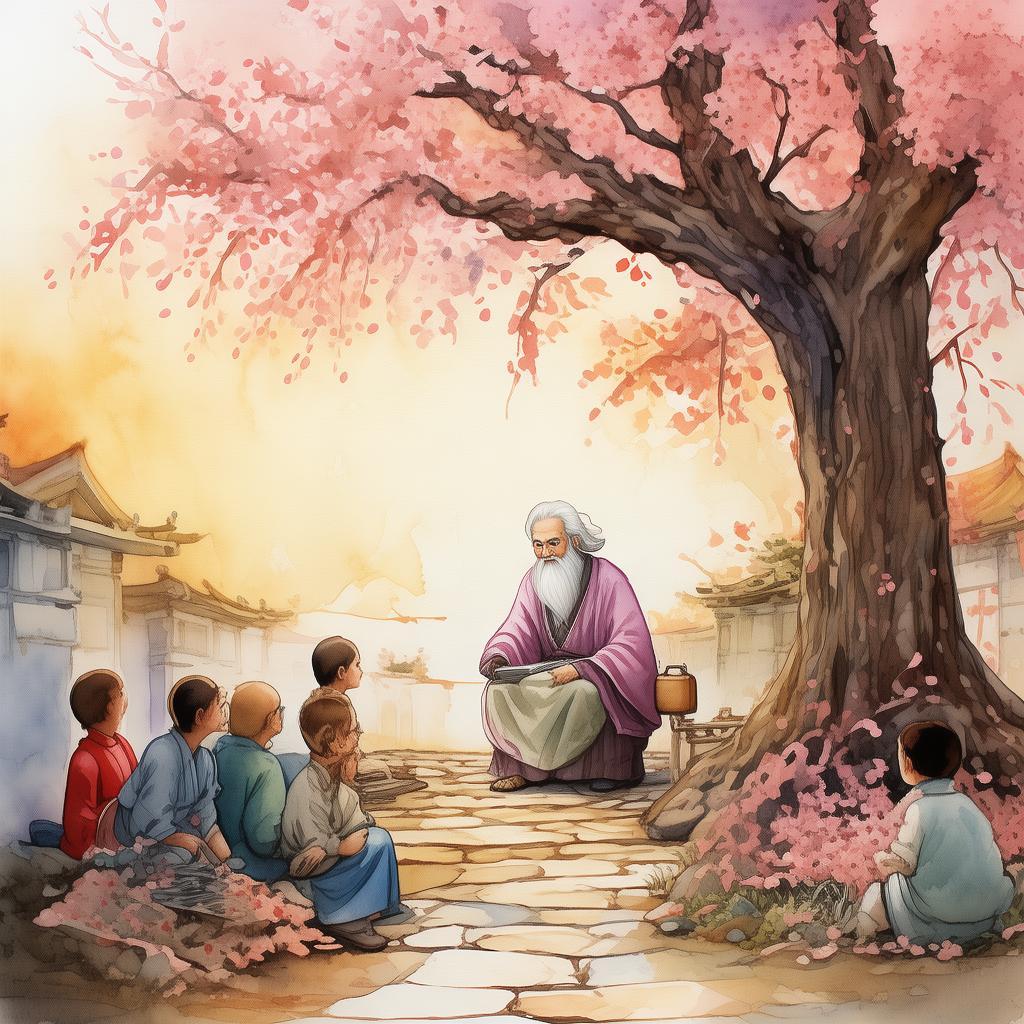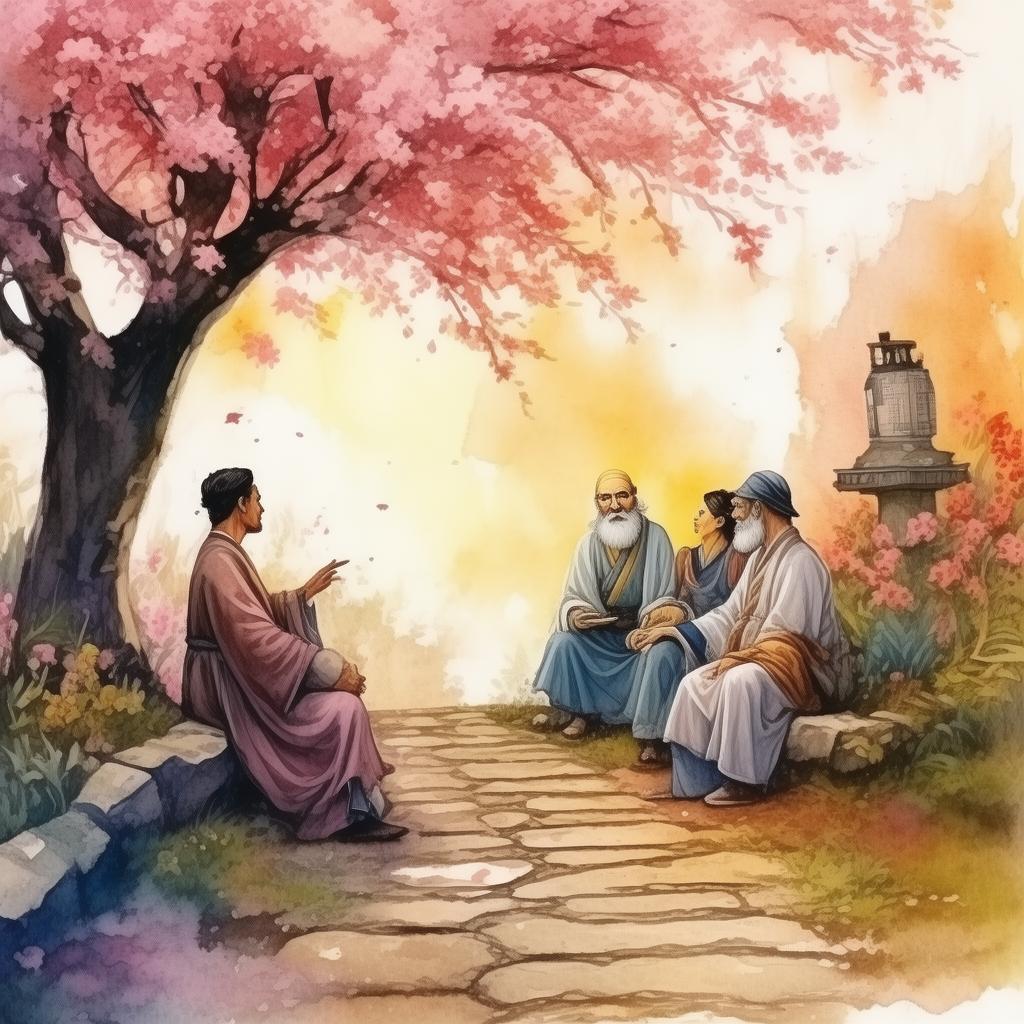Whispers of the Bamboo Wall: The Monk's Silent Revolution
The sun dipped below the horizon, casting long shadows over the ancient temple. The monk, named Jinghua, stood before the towering bamboo walls that surrounded the sanctuary of tranquility. His eyes reflected the deep contemplation that had become his constant companion. The temple, a place of solace and enlightenment, was now a beacon of hope in a world shrouded in darkness.
In the kingdom of Chang'an, the times were tumultuous. Wars raged, and the people were weary. The ruler, a man of ambition and greed, sought to consolidate power at any cost. The people, bound by fear and oppression, had long forgotten the essence of their culture and the values that once united them.
Jinghua had witnessed the suffering of his people. He knew that the path to redemption was not through violence or rebellion, but through awakening the soul of a people. He had discovered an ancient secret, hidden within the bamboo walls of the temple. It was a truth that could unite the scattered tribes and inspire them to rise against the oppressive regime.
The secret was a sacred mantra, passed down through generations by the monks of ancient times. It was a mantra that had the power to bring peace and harmony, to heal the wounds of the past and to ignite the flame of hope within the hearts of the people.
Jinghua began his silent revolution. He spent countless hours meditating in the temple, studying the ancient texts, and mastering the sacred mantra. He knew that he must be prepared for the journey ahead. The path would be fraught with challenges and dangers, but he was determined to succeed.
One evening, as the moonlight filtered through the bamboo leaves, Jinghua emerged from the temple. He carried with him a bundle of bamboo stalks, each etched with the sacred mantra. He traveled to the remote villages, hidden in the mountains, where the people were most in need of hope.
In each village, he taught the people the mantra, explaining its significance and the power it held. He showed them how to use the bamboo walls to create a protective barrier, shielding them from the darkness that threatened to consume them. He became a symbol of hope, a whisper of the bamboo wall that resonated with the soul of the people.
The ruler of Chang'an, aware of the monk's activities, sent his agents to silence him. They surrounded the temple, ready to execute their orders. But as the agents approached, they were met with a sight that defied their expectations. The monks, led by Jinghua, had created a massive bamboo wall around the temple, inscribed with the sacred mantra.
The agents, struck by the beauty and power of the wall, were unable to attack. Instead, they were drawn to the temple, drawn to the monk who stood at its center. They listened as Jinghua spoke of peace and unity, of the strength that lay within each individual and the power of the collective spirit.
The ruler, realizing the potential of the monk's message, decided to listen. He sent a messenger to the temple, offering to meet with Jinghua. The meeting took place in the heart of the bamboo wall, under the watchful eyes of the people.
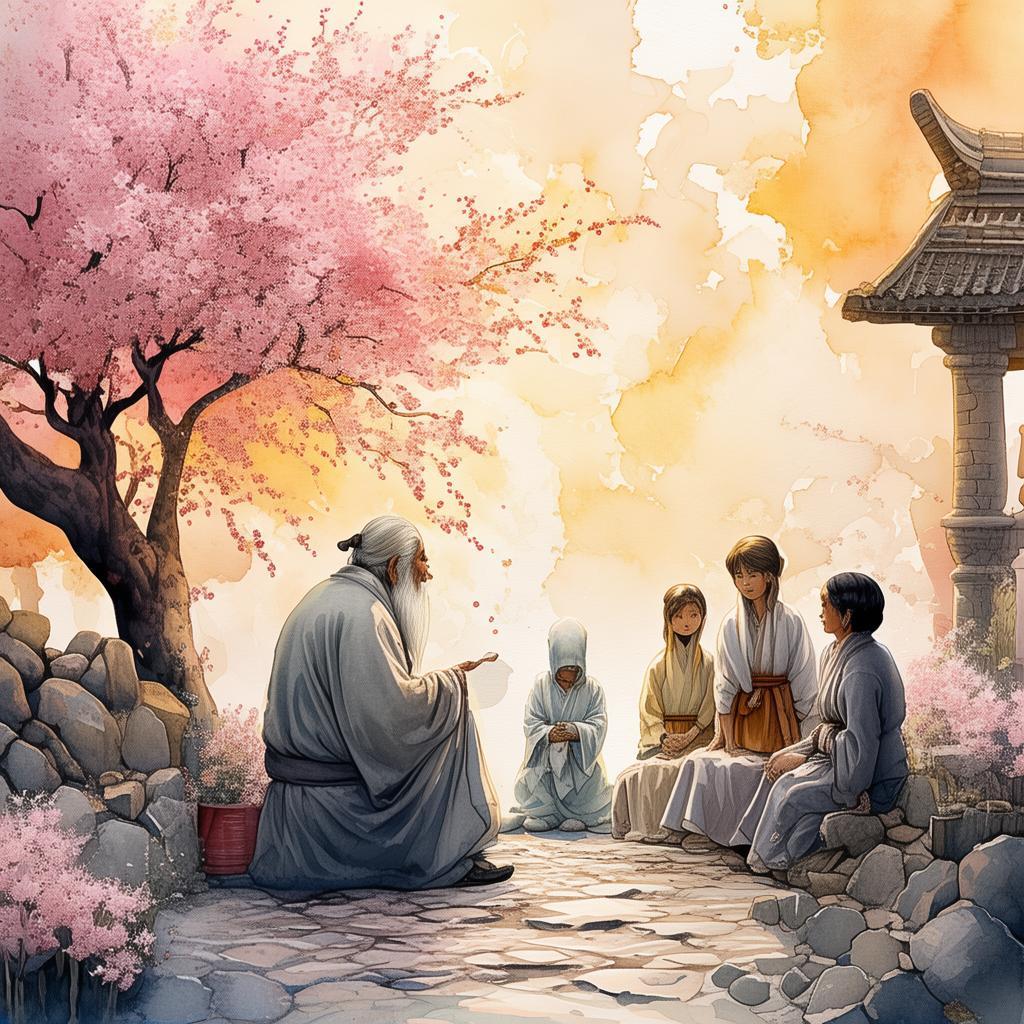
Jinghua shared with the ruler the sacred mantra and its power to transform the kingdom. The ruler, moved by the monk's sincerity and the truth of his words, agreed to implement the changes that would bring peace and prosperity to his people.
As the years passed, the kingdom of Chang'an flourished. The people, united by the sacred mantra and the bamboo walls, thrived in harmony. The kingdom became a beacon of hope, a testament to the power of the soul and the enduring strength of a people who had chosen to rise above their hardships.
Jinghua, the monk who had once stood before the bamboo walls, had become a legend. His name was whispered in reverence, a reminder that even in the darkest of times, the light of hope could shine through.
In the end, it was not the sword or the might of the ruler that brought change to the kingdom, but the silent revolution of a monk who had chosen to awaken the soul of a people. His legacy lived on in the bamboo walls that stood as a testament to the power of unity, peace, and the enduring spirit of humanity.
✨ Original Statement ✨
All articles published on this website (including but not limited to text, images, videos, and other content) are original or authorized for reposting and are protected by relevant laws. Without the explicit written permission of this website, no individual or organization may copy, modify, repost, or use the content for commercial purposes.
If you need to quote or cooperate, please contact this site for authorization. We reserve the right to pursue legal responsibility for any unauthorized use.
Hereby declared.


